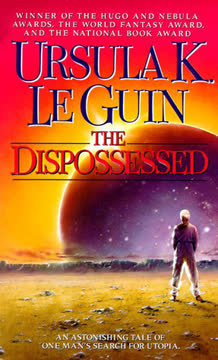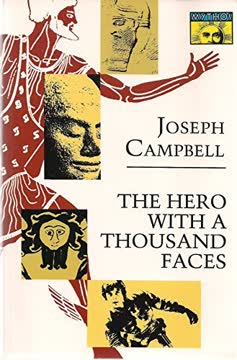Key Takeaways
1. Anarchism Rejects External Rule and Embraces Self-Regulation
All anarchists reject the legitimacy of external government and of the State, and condemn imposed political authority, hierarchy and domination.
Core Tenets of Anarchism. Anarchism, at its heart, is a social philosophy advocating for a society without government. It condemns external rule, imposed authority, and hierarchical structures. Instead, it champions a decentralized, self-regulating society where individuals and voluntary associations interact freely, guided by mutual consent and cooperation.
Anarchy as a Dynamic River. Anarchism is not a rigid doctrine but a fluid and evolving philosophy. It encompasses diverse currents of thought and strategy, all converging towards the ideal of a free society. This diversity allows for adaptation and innovation, ensuring anarchism remains relevant in changing times.
Goal of a Free Society. The ultimate aim of anarchism is to create a society where all individuals can realize their full potential. This involves dismantling coercive systems and fostering an environment where freedom, equality, and mutual aid flourish, enabling each person to live a meaningful and fulfilling life.
2. Society and State Are Distinct Entities
Society for anarchists is, as Thomas Paine wrote, invariably ‘a blessing’, the repository of all what is good in humanity: co-operation, mutual aid, sympathy, solidarity, initiative, and spontaneity.
Society as a Natural Order. Anarchists view society as a natural and beneficial construct, fostering cooperation, mutual aid, and spontaneous organization. It is seen as a self-regulating entity that thrives when left unburdened by external interference. This perspective contrasts sharply with the view of the State.
The State as an Artificial Superstructure. The State, in anarchist thought, is an artificial and oppressive entity imposed upon society. It is an instrument of domination, perpetuating inequality and hindering the natural, harmonious functioning of human communities. Anarchists argue that the State's coercive apparatus is not a remedy for social disorder but a primary cause of it.
Natural Order vs. Imposed Rule. Anarchists believe that social order can emerge spontaneously from the interactions of free individuals and voluntary associations. This natural order is far more effective and beneficial than any order imposed by authority, which stifles creativity and prevents the realization of a truly free society.
3. Natural Order Emerges Spontaneously
A fundamental assumption of anarchism is that nature flourishes best if left to itself.
Cosmic Optimism. Anarchists generally believe that nature, including human nature, is inherently good and self-regulating. They trust that without the artificial restrictions of the State and government, a harmonious balance will emerge among individuals and communities. This trust is rooted in a cosmic optimism.
Nature as a Dynamic Process. Anarchists view nature not as a static entity but as a dynamic process of constant change and evolution. They believe that the best way to foster improvement is to allow nature to follow its own course, free from human interference. This perspective aligns with ecological principles of unity in diversity and harmony through complexity.
Spontaneous Order. Anarchists are confident that given common needs, human beings can organize themselves and create a social order that is far more effective and beneficial than any imposed by authority. Liberty, as Proudhon observed, is the mother, not the daughter, of order. This belief in spontaneous order is a cornerstone of anarchist thought.
4. Freedom Requires Both Absence of Restraint and Capacity for Self-Realization
Man is truly free only among equally free men.
Negative and Positive Freedom. Anarchists seek to expand human freedom in both the negative sense of being free from external restraint and the positive sense of being free to realize one's full potential. This dual emphasis ensures that freedom is not merely the absence of oppression but also the presence of opportunity and self-determination.
Freedom for All. Anarchists are not concerned with the freedom of a particular class or elite but with the freedom of all human beings. They recognize that the freedom of each is contingent upon the freedom of all, as articulated by Bakunin: "Man is truly free only among equally free men." This principle underscores the importance of equality in anarchist thought.
Moral and Social Dimensions of Freedom. Anarchists acknowledge that freedom is not absolute and must be tempered by moral and social considerations. They reject the notion of doing whatever one pleases without regard for the consequences, emphasizing the need for personal responsibility and a commitment to the well-being of others.
5. Anarchism Challenges Traditional Views of Authority and Power
Every State is a despotism, be the despot one or many.
Rejection of Political Authority. Anarchists fundamentally reject political authority, denying anyone the legitimate right to issue commands and have them obeyed. They view the State as an instrument of oppression, controlled by the rich and powerful, and used to defend their interests and privileges.
Distinction Between Authority and Influence. While rejecting imposed authority, anarchists recognize the value of influence based on competence and consent. They are willing to accept guidance from those with superior knowledge or skills, provided that such guidance is voluntary and does not entail coercion.
Power as Domination. Anarchists are opposed to all power that is coercive and non-reciprocal, especially in the sense of domination, which involves force and conflict between two parties. They seek to minimize the influence of power in society and to foster relationships based on mutual respect and voluntary cooperation.
6. Equality in Anarchism Means Equal Claim to Freedom, Not Uniformity
Man is truly free only among equally free men.
Beyond Liberal Equality. Anarchists go beyond the liberal concept of equality as equality before the law or equality of opportunity. They advocate for economic and social equality, recognizing that true freedom can only be achieved when all individuals have an equal claim to self-development.
Rejection of Uniformity. Anarchists do not seek to impose a uniform standard of grey mediocrity. They value individuality and diversity, recognizing that human beings have different talents, needs, and desires. Their goal is to create a society where everyone has the freedom to pursue their own path, without being constrained by artificial hierarchies or imposed norms.
Fair Shares, Not Equal Shares. While advocating for economic and social equality, anarchists do not necessarily insist on equal treatment or equal shares. They are more concerned with ensuring that everyone has access to the resources they need to live a fulfilling life, based on the principle of "from each according to their ability, to each according to their need."
7. Anarchism's Roots Lie in Ancient Philosophies and Religious Movements
Throughout the history of our civilization, two traditions, two opposing tendencies have confronted each other: the Roman and the Popular; the imperial and the federalist; the authoritarian and the libertarian.
Taoism and Buddhism. The anarchist sensibility can be traced back to ancient philosophies such as Taoism and Buddhism, which emphasized living in harmony with nature and rejecting external authority. These traditions laid the groundwork for later anarchist ideas about self-regulation and non-interference.
The Greeks. Classical Greek thought, particularly the Stoics and Cynics, contributed to the development of anarchist ideas by emphasizing individual autonomy, rationalism, and cosmopolitanism. These thinkers challenged the legitimacy of the State and advocated for a life lived in accordance with nature and reason.
Christianity. The Christian tradition, particularly in its radical and communal forms, has also inspired anarchist thought. Early Christian communities, with their emphasis on sharing and mutual aid, and later millenarian movements, with their vision of a world without rulers, have provided models for anarchist societies.
8. The State is the Root of Oppression and Injustice
They ‘lay their hand on the spring there is in society, and put a stop to its motion’.
State as an Instrument of Oppression. Anarchists view the State as an artificial superstructure separate from society, an instrument of oppression and one of the principal causes of social evil. They reject the idealist view that the State can express the General Will of the people, seeing it instead as a tool of the rich and powerful.
State Perpetuates Inequality. Anarchists argue that the State perpetuates economic inequality by concentrating force and aggravating the inequality of property. They believe that the State's legislation is inevitably made in the interests of the dominant elite, further entrenching their power and privilege.
State Crushes Spontaneity. Anarchists contend that the State crushes the spontaneous life of society, preventing the dynamic creativity and spontaneity of the people. They believe that the State's tendency is to perpetuate abuse and to fix the human mind in a stagnant condition, hindering progress and innovation.
9. The Means Shape the Ends: Violence Undermines Freedom
The greater the violence, the less revolution.
Moral Protest Against Oppression. Anarchism was born of a moral protest against oppression and injustice. The very first human societies saw a constant struggle between those who wanted to rule and those who refused to be ruled or to rule in turn. The first anarchist was the first person who felt the oppression of another and rebelled against it.
Violence as a Self-Defeating Strategy. Pacifist anarchists argue that it is impossible to bring about a peaceful and free society by the use of violence since means inevitably influence the nature of ends. They believe that violence only perpetuates oppression and undermines the very values that anarchists seek to promote.
Non-Violent Direct Action. Pacifist anarchists advocate for non-violent direct action, passive resistance, and civil disobedience as the most effective means of achieving social change. They engage in strikes, boycotts, demonstrations, and occupations, seeking to transform society through peaceful and constructive means.
10. The Relevance of Anarchism in the Modern World
Anarchism further seeks in social life what appears to operate in nature: the call for self-management in society mirrors the self-regulation and self-organization of nature itself.
Enduring Affinity with Rational and Emotional Impulses. The continued appeal of anarchism can probably be attributed to its enduring affinity with both the rational and emotional impulses lying deep within us. It is an attitude, a way of life as well as a social philosophy. It presents a telling analysis of existing institutions and practices, and at the same time offers the prospect of a radically transformed society.
Freedom as a Deeply Felt Human Need. A study of anarchism will show that the drive for freedom is not only a central part of our collective experience but responds to a deeply felt human need. Freedom is necessary for original thought and creativity. It is also a natural desire for we can see that no animal likes to be caged and all conscious beings enjoy the free satisfaction of their desires.
Vision of a Free Society. Above all, it holds up the bewitching ideal of personal and social freedom, both in the negative sense of being free from all external restraint and imposed authority, and in the positive sense of being free to celebrate the full harmony of being. Whatever its future success as a historical movement, anarchism will remain a fundamental part of human experience, for the drive for freedom is one of our deepest needs and the vision of a free society is one of our oldest dreams.
Last updated:
Review Summary
Demanding the Impossible is a comprehensive history of anarchism, praised for its thorough coverage of anarchist thinkers, movements, and ideas. Readers appreciate Marshall's balanced approach and engaging writing style. The book is noted for its exploration of anarchism's philosophical roots and its influence on modern political thought. While some find it dense and occasionally repetitive, many consider it an essential reference for those interested in anarchism. Critics note a bias towards pacifism and a lack of diversity in represented voices.
Similar Books










Download PDF
Download EPUB
.epub digital book format is ideal for reading ebooks on phones, tablets, and e-readers.




